.png)
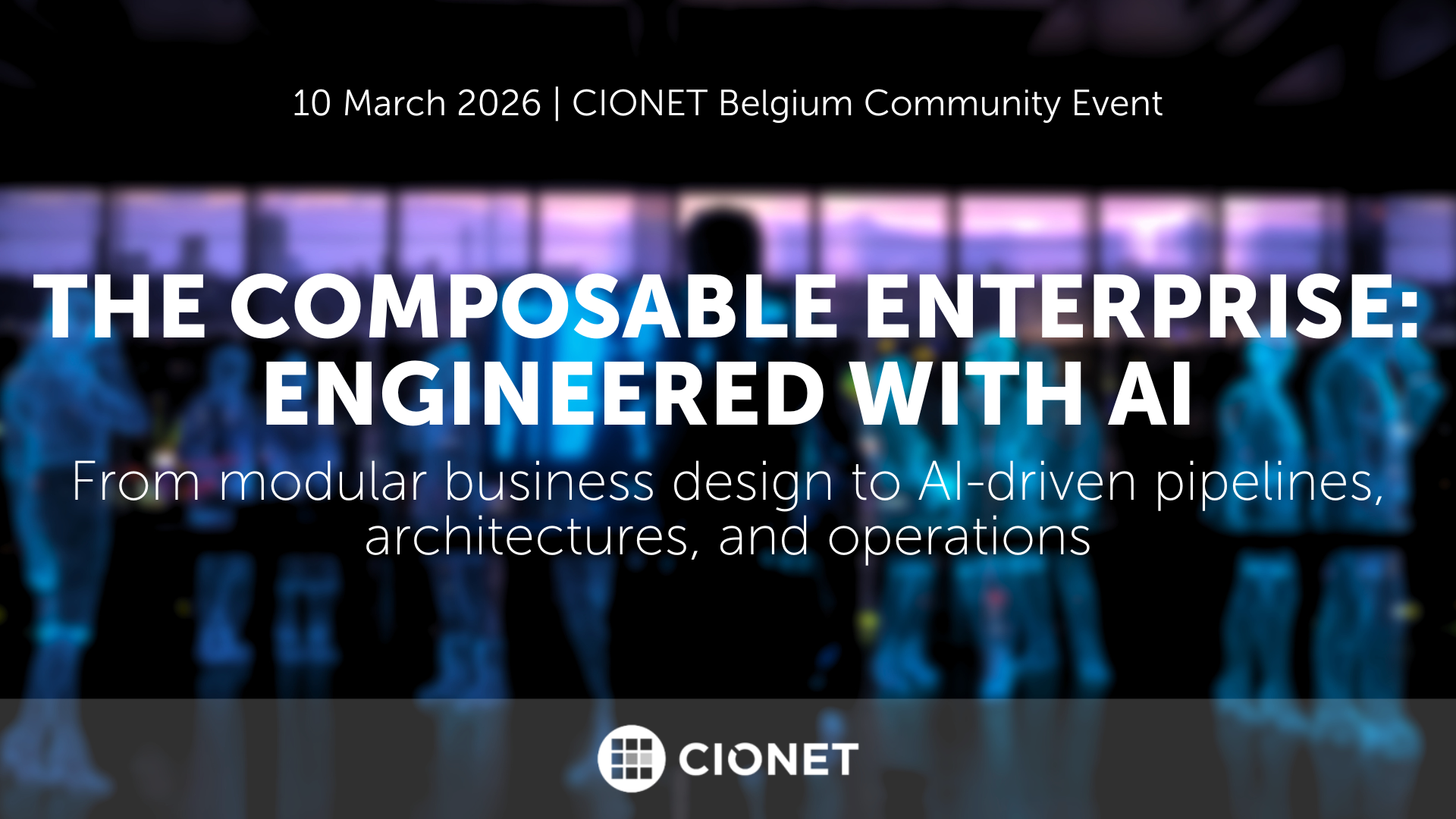
Belgium 10-3-26 All Members Physical english
From modular business design to AI-driven pipelines, architectures, and operationsA composable enterprise is built on modular processes, API-driven ecosystems, low-code platforms, and cloud-native services. It promises speed and adaptability by allowing organisations to reconfigure their capabilities as conditions change. However, modular design alone does not guarantee resilience; the way these systems are engineered and operated is just as important.This is where AI is beginning to make a difference. Beyond generating snippets of code, AI is already influencing how entire systems are developed and run: accelerating CI/CD pipelines, improving test coverage, optimising Infrastructure-as-Code, sharpening observability, and even shaping architectural decisions. These changes directly affect how quickly new business components can be deployed, connected, and retired.In this session, we will examine how CIOs can bring these two movements together:Composable design is the framework for flexibility and modularity.AI-augmented engineering is the force that delivers the speed, quality, and intelligence needed to sustain it.The pitfalls of treating them in isolation: composability that collapses under slow engineering cycles, or AI that only adds complexity without a modular structure.The discussion goes beyond concepts to practical implications: how to architect organisations that can be recomposed at speed, without losing control or reliability. The outcome is an enterprise that is not only modular in design but also engineered to adapt continuously under real-world conditions.
Read More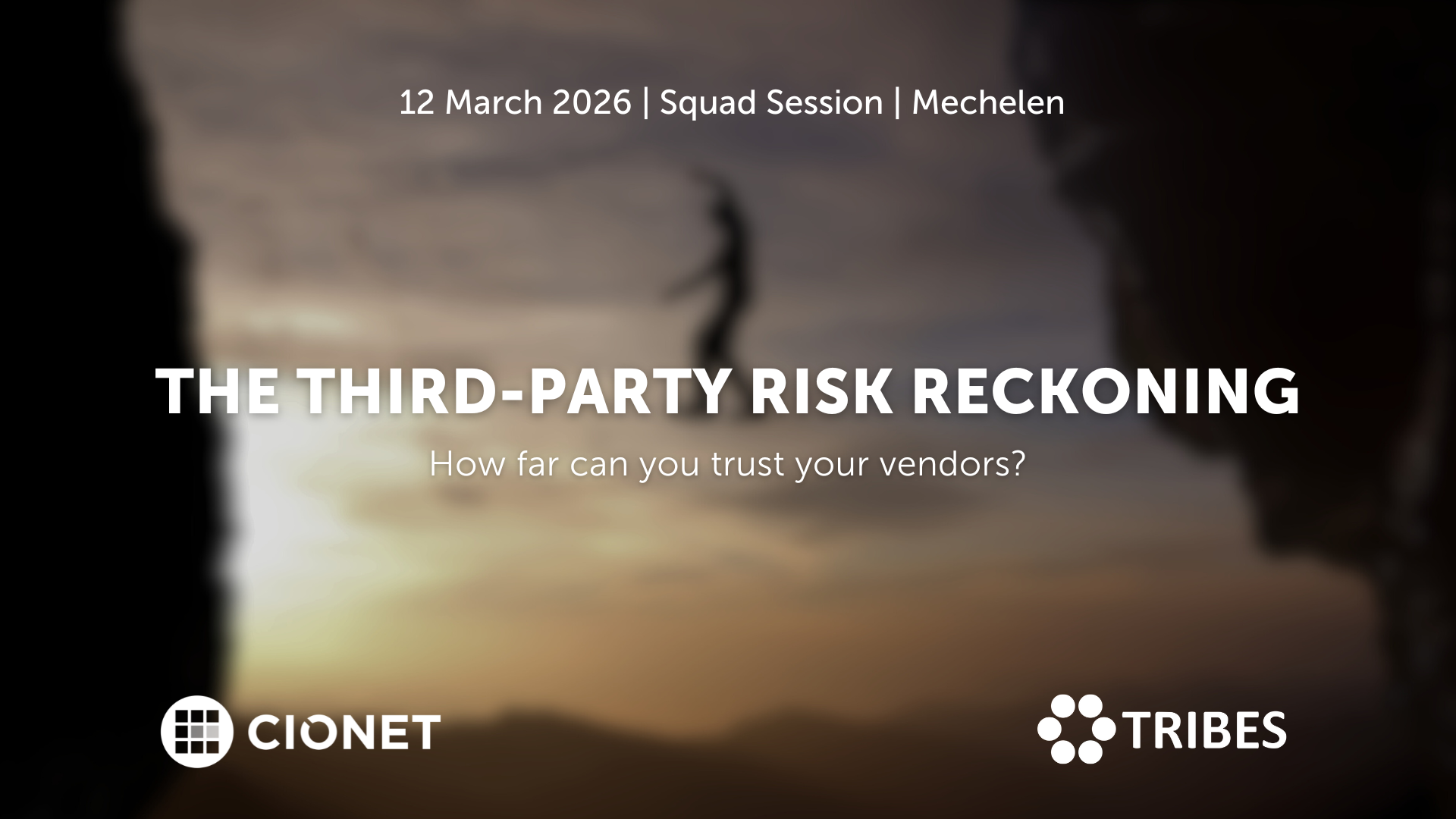
Belgium 12-3-26 Physical english
Tomato! Tomato! Tomato! Get your tomato now! Every vendor sells security. And every company depends on vendors, partners, and suppliers. The more digital the business becomes, the longer that list grows, and so does the attack surface. One weak link, and there is always one, or one missed update, and trust collapses faster than any firewall can react. What used to be a procurement checklist has become a full-time discipline. Questionnaires, audits, and endless documentation prove that everyone’s “compliant,” yet incidents keep happening. So it’s clear: the issue isn’t lack of policy, or maybe a bit, but mostly lack of visibility. Beyond a certain point, even the most secure organisation is only as safe as its least prepared partner (or an employee who hadn’t had their morning coffee). So how far can you trust your vendors? How do you check what you can’t control? And when does assurance become theatre instead of protection? Does it come at a different cost? Let’s exchange what works and what fails in third-party risk management: live monitoring, shared responsibility models, contractual levers, and the reality of building trust in a chain you don’t own. A closed conversation for those redefining what partnership means when risk is shared but accountability isn’t.
Read More.jpg)
Belgium 19-3-26 Country Members Physical french
Moins de Partenaires : La consolidation vaut-elle le risque ? Le problème est la prolifération des fournisseurs : trop d'outils causant de la complexité, une taxe d'intégration paralysante et de la redondance. La Taxe d'Intégration est le coût caché (en temps, en échecs et en ressources) d'essayer de faire fonctionner ensemble des systèmes disparates. Cet échange se concentre sur des stratégies éprouvées pour simplifier de manière agressive le parc technologique, consolider les fournisseurs et élever certains fournisseurs clés au rang de partenaires stratégiques.
Read More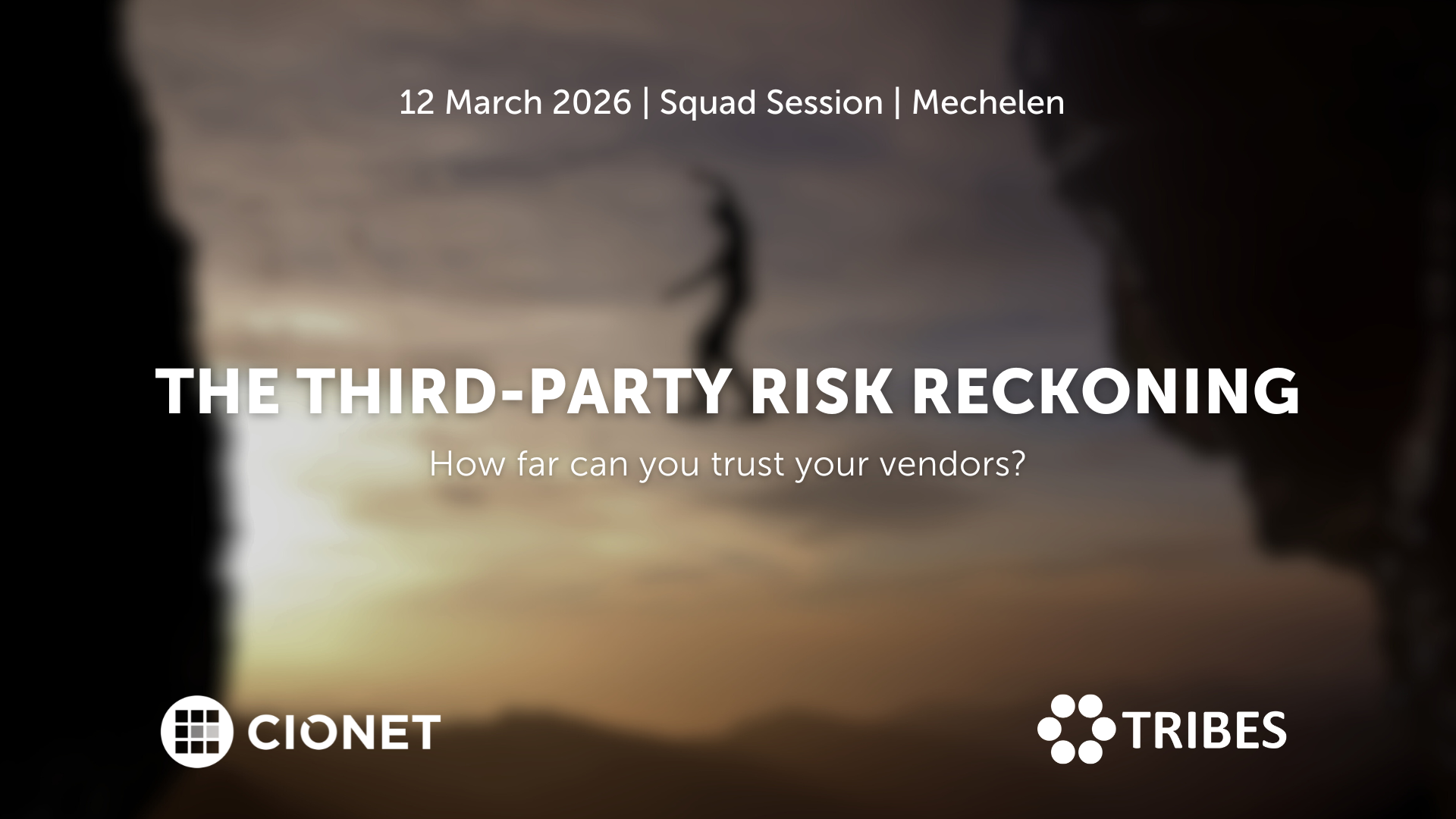
March 12, 2026 Squad Session Invitation Only Physical english
Tomato! Tomato! Tomato! Get your tomato now! Every vendor sells security. And every company depends on vendors, partners, and suppliers. The more digital the business becomes, the longer that list grows, and so does the attack surface. One weak link, and there is always one, or one missed update, and trust collapses faster than any firewall can react.
Read More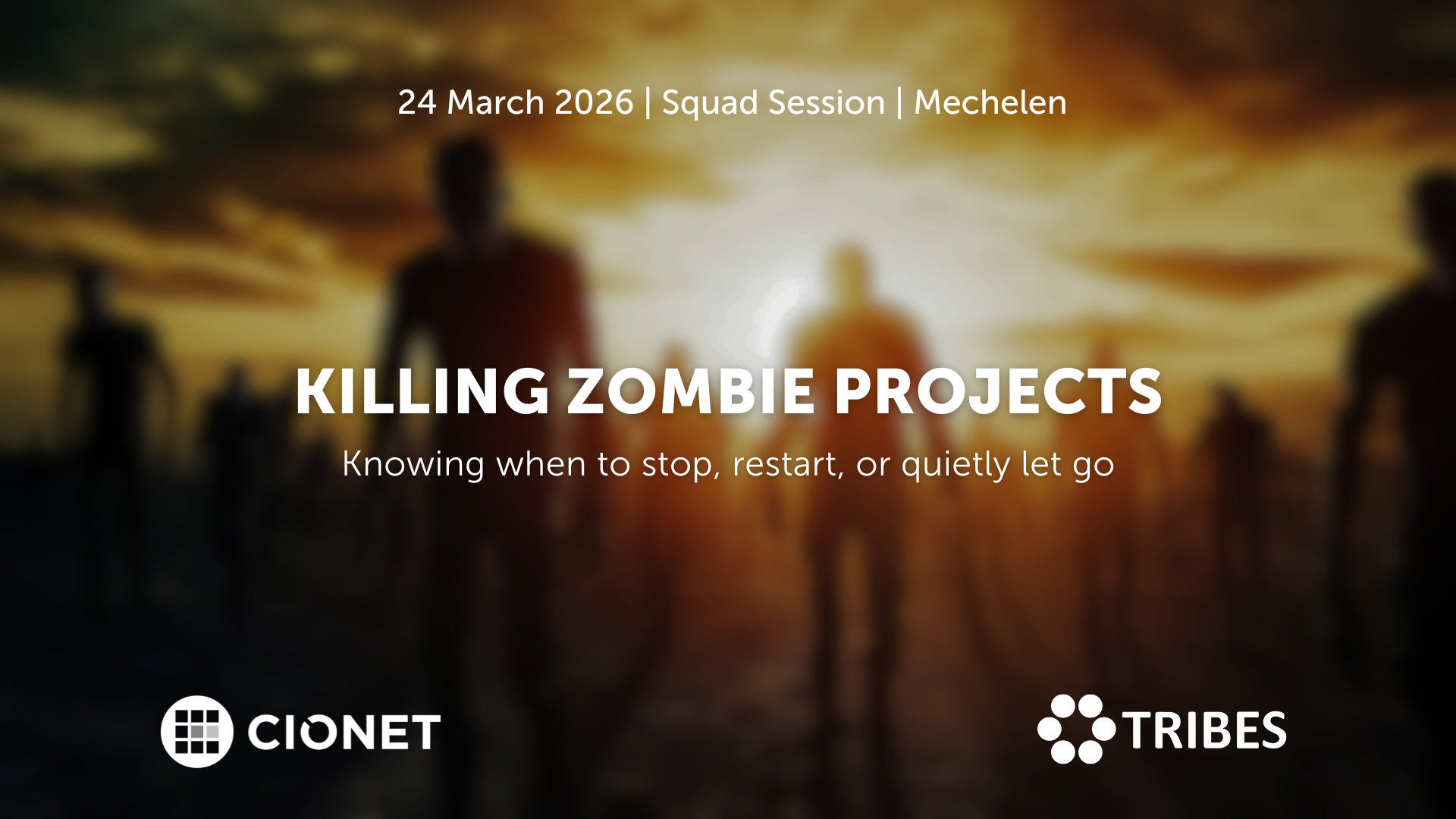
March 24, 2026 Squad Session Invitation Only Physical english
Every organisation has them, projects that keep running long after their purpose has faded. No one remembers who asked for them, but shutting them down feels riskier than keeping them alive. And eventually, people stay assigned, budgets stay allocated, and energy drains into work that no longer matters. Inertia at its finest.
Read More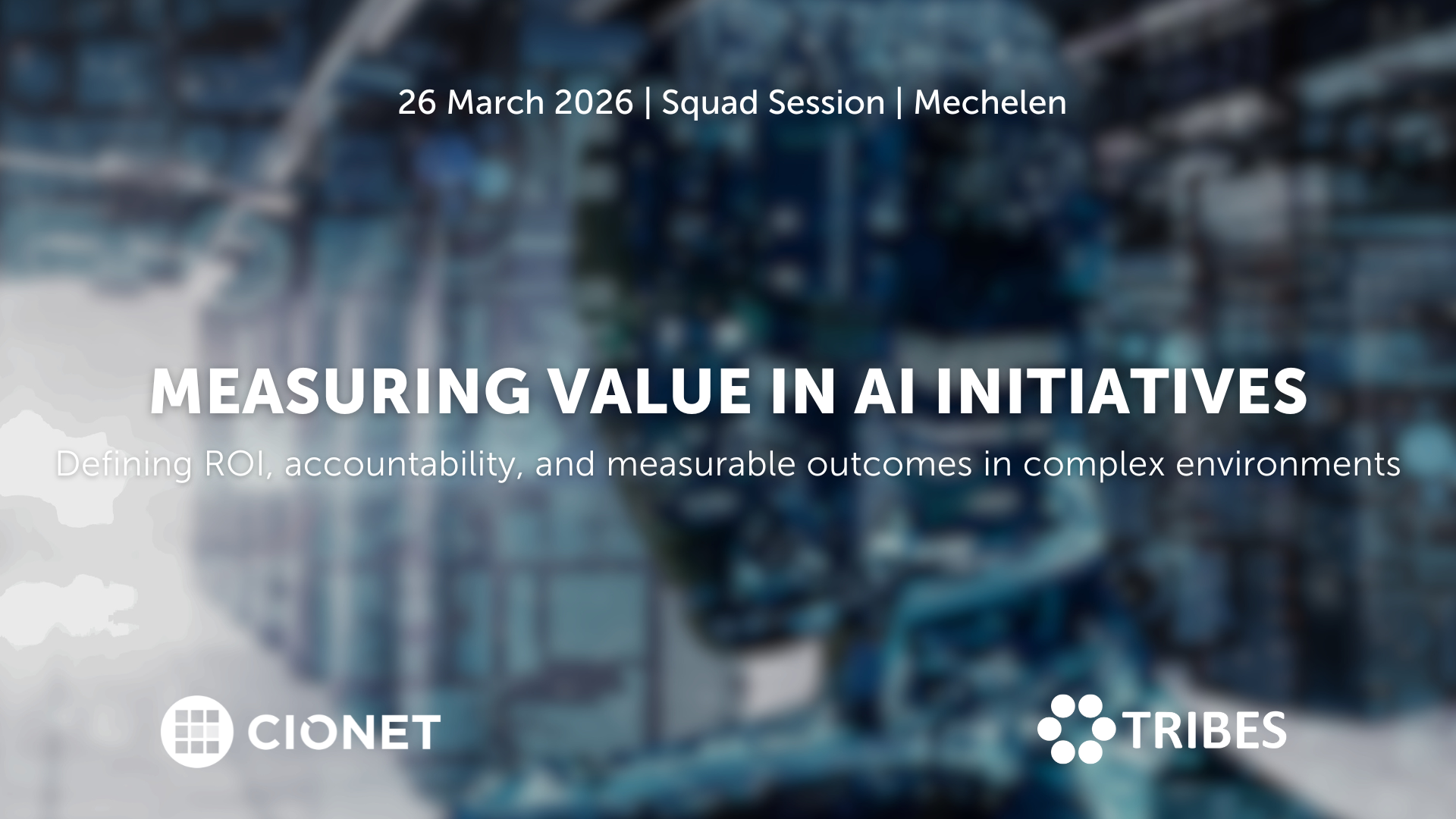
March 26, 2026 Squad Session Invitation Only Physical english
AI projects continue to multiply, but proving their value remains difficult. Most organisations can track activity, not impact. Dashboards count pilots and models, yet few translate to measurable business outcomes. The result is familiar: success stories without clarity on what they actually delivered.
Read More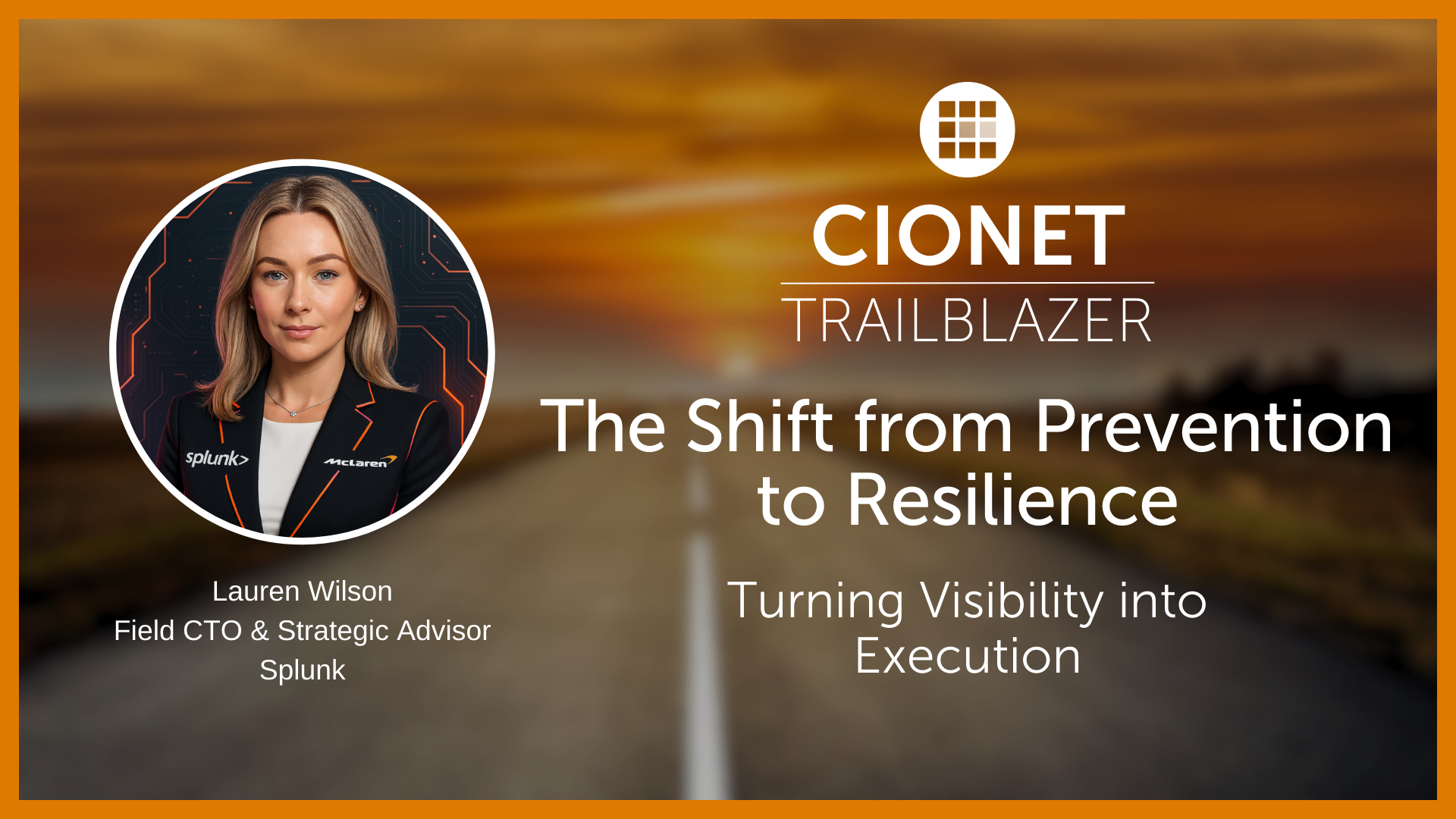
CIONET Trailblazer: CISO: The Shift from Prevention to Resilience: Turning Visibility into Execution
Published on: January 28, 2026 @ 9:48 AM
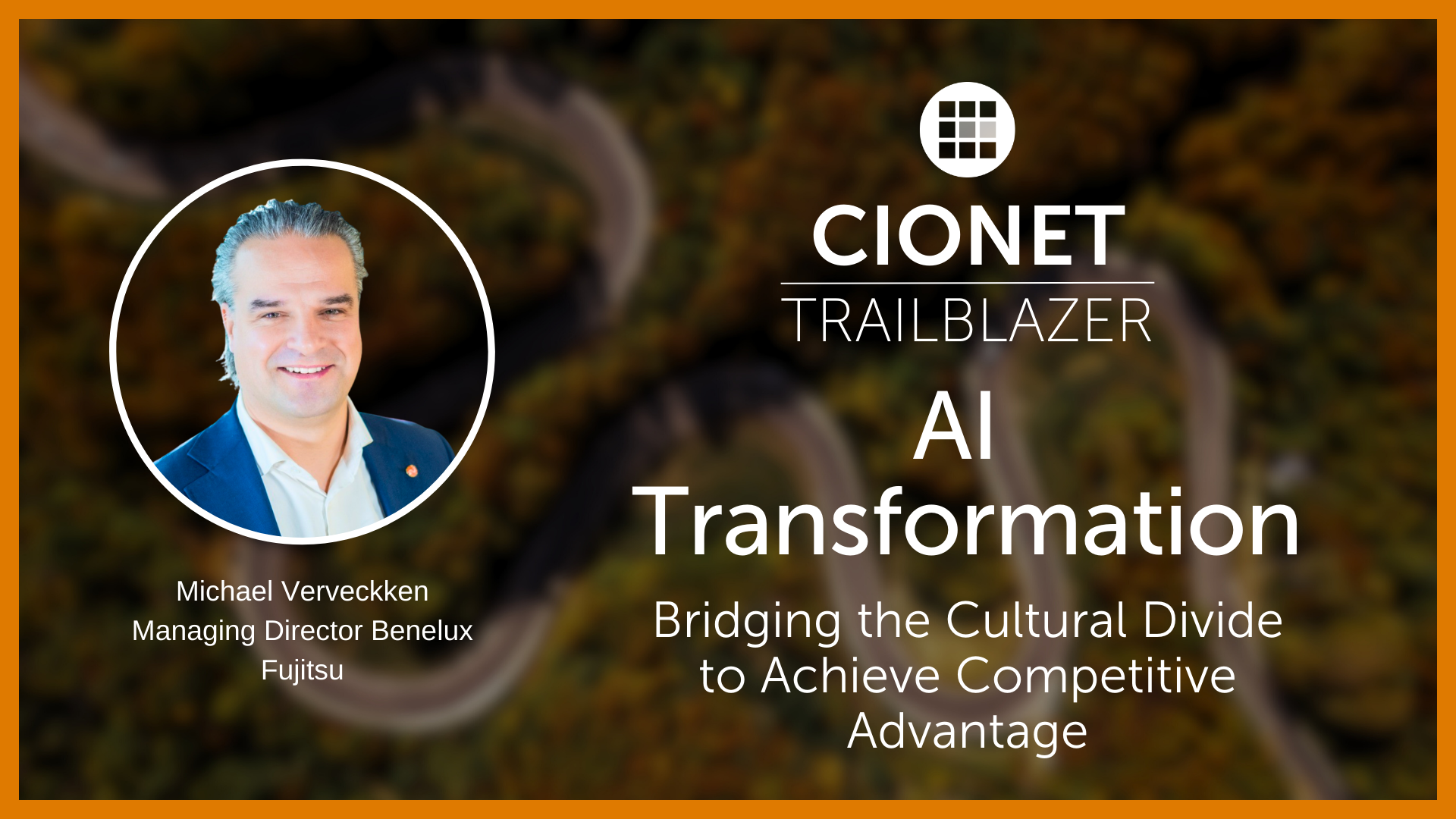
CIONET Trailblazer: AI Transformation: Bridging the Cultural Divide to Achieve Competitive Advantage
Published on: December 17, 2025 @ 9:16 AM
E.ON provides networks and energy infrastructure to 48 million customers across Europe. This is a big responsibility, and the company needs up-to-date data to make strategic decisions. Since the second half of 2023, E.ON employees have been using Power BI for this purpose.
Power BI had a clear advantage over other tools in terms of interoperability with the Microsoft 365 platform. We face no obstacles in getting data to the right place. - Lars Hesse: Data Analyst, E.ON Energie Deutschland GmbH

When he began his current role, Jan Finke, IT Service Owner, Business Intelligence and Visualization Technologies at E.ON Digital Technology GmbH, was tasked with advancing and scaling E.ON’s existing internal Power BI platform service. According to Finke, Power BI stood out as a great fit for a large, multifaceted company like E.ON and has since become the most in-demand data visualization product compared to the company’s alternative solutions. “Power BI is a particularly good match for us because we’re distributed across Europe but all share the same goal of developing our business,” explains Finke. “To do that, we need to make data-driven decisions.” Adds Lars Hesse, Data Analyst at E.ON Energie Deutschland GmbH, “Before, we had to present data either by showing it in Excel or creating a PowerPoint slide. And despite all our efforts gathering and compiling data, the reports didn’t always reflect the most up-to-date information.”
Hesse and his team also use the insights from Power BI to work more productively. “In the case of Power BI, the productivity comes with the automation,” he says. For example, to create monthly recurring reports, Hesse and his colleagues use a Power BI template that already includes E.ON branding and helps boost efficiency with automated updates to standard datasets. “This is a big change compared to how we did these reports in the past,” says Hesse. “It’s much more efficient to use Power BI to automatically update recurring reports with the latest data rather than manually creating those reports like we did in the past.”
Working with Power BI to report content from within PowerPoint has proved to be another popular efficiency gain. “After we adopted Power BI, we discovered things we never dreamed of, such as the interoperability of the tool with PowerPoint,” recalls Hesse. “We now create PowerPoint presentations that incorporate live data. This was a major step toward becoming a leading-edge company that moves at the speed of business with the latest data always available.”
The centralized, flexible nature of Power BI suits E.ON well, especially considering that more than 65,000 employees use Teams as their go-to productivity platform. “Power BI had a clear advantage over other tools in terms of interoperability with the Microsoft 365 platform,” says Hesse. “We face no obstacles in getting data to the right place.”
Microsoft Teams appealed to E.ON decision-makers because they can adapt it to meet a variety of needs. “We have several hundred subsidiaries,” says Finke. “Depending on the business unit, technology requirements are quite different. We have very small units with just a few dozen employees who focus on innovation, and we have units with thousands of employees who operate on a totally different scale.”
E.ON uses Teams to balance standardization—an efficiency booster for any organization—with the level of customization that helps individual business units achieve their specific goals. Iury Fillies Santos, IT Service Owner, Collaboration Services at E.ON Digital Technology GmbH, says, “When it comes to making certain functionality available in Teams, like the ability to record a meeting, we can be precisely scoped and deliver services or features for just one segment of users. This helps us deliver the business value for local units while maintaining a centralized approach and overarching outlook as a service owner.”
Adopting Power BI inspired Hesse and his colleagues to launch a new data democratization effort at E.ON. “A big focus for my team is preparing datasets for internal audiences and training colleagues how to use Power BI to dive deeper into relevant data,” says Hesse. Today, the E.ON group has more than 1,400 active Power BI Premium workspaces, and enthusiasm for the solution is gaining momentum. Hesse continues, “It’s quite easy for employees of all experience levels to create a report in Power BI once they know a few basics.” He and his team also use the personalize visuals feature to create user-friendly reports that allow for a manageable level of customization. “We use the personalize visuals feature in Power BI to help focus on certain areas of interest and work more efficiently with a curated view of the data,” he says.
Most of the employees’ Power BI training takes place within the Teams platform. “For the E.ON Energie Deutschland GmbH segment of the business, we set up a team called ‘Self BI Hub’ where anyone with knowledge of or interest in Power BI can gather to learn more,” says Hesse. “We now see more and more people joining this journey and using Teams to share their success stories. It’s no longer just individuals looking for solutions to their use cases, it’s a community learning from each other.”
It’s quite easy for employees of all experience levels to create a report in Power BI once they know a few basics. - Lars Hesse: Data Analyst, E.ON Energie Deutschland GmbH

By combining Teams and Power BI, E.ON has created a richly interoperable, efficient experience for colleagues collaborating around data insights. “Using Power BI and Teams together brings even more value,” says Finke. “Teams helps connect the right people in our business while Power BI is the tool they use to support the right decisions.” E.ON employees save time by working on data visualization from within the Teams platform. They no longer need to switch between applications. “We find it’s easiest to use the Power BI app in Teams and begin collaborating with colleagues right within that window,” says Hesse.
Working together in the Teams platform also makes it easy to maintain a high standard of security. “We use Microsoft Entra ID groups to manage who has access to certain teams in the platform, and by default, we use that same method to control who has access to Power BI reports within Teams. It’s much easier than maintaining permissions some other way,” notes Hesse.
Using Power BI and Teams together brings even more value. Teams helps connect the right people in our business while Power BI is the tool they use to support the right decisions. - Jan Finke: IT Service Owner, Business Intelligence and Visualization Technologies, E.ON Digital Technology GmbH
E.ON’s sustainability goals are directly tied to the company’s ambition to become more data driven. Finke explains, “The energy business is changing. We have a much more decentralized energy production that requires the energy network to adapt and learn how to use our grids effectively.” It comes down to making choices grounded in reliable insights and using data to conserve resources. “Making decisions based on timely data is a powerful way to reduce waste,” Finke continues. “We use Power BI to focus our resources in the right direction and deliver a positive business impact.”
After employees’ initial success with Power BI and Teams, E.ON is incorporating even more apps into the Teams platform and continuing to promote a culture of data-driven decision-making. “We see usage of the Power BI app in Teams increasing every day,” says Fillies Santos. “We also have a huge app catalog, and employees spreading the word about the benefits of adding applications to the Teams environment.” Whether it’s using data to allocate resources more thoughtfully, empowering employees with insights into their unique business areas, or collaborating more efficiently, E.ON has embraced a new way of working that matches the future-focused nature of the business. “We now see Power BI and Teams ase essential to how we work today,” says Finke.
We use Power BI to focus our resources in the right direction and deliver a positive business impact. - Jan Finke: IT Service Owner, Business Intelligence and Visualization Technologie, E.ON Digital Technology GmbH
362 Views 0 Likes Read More
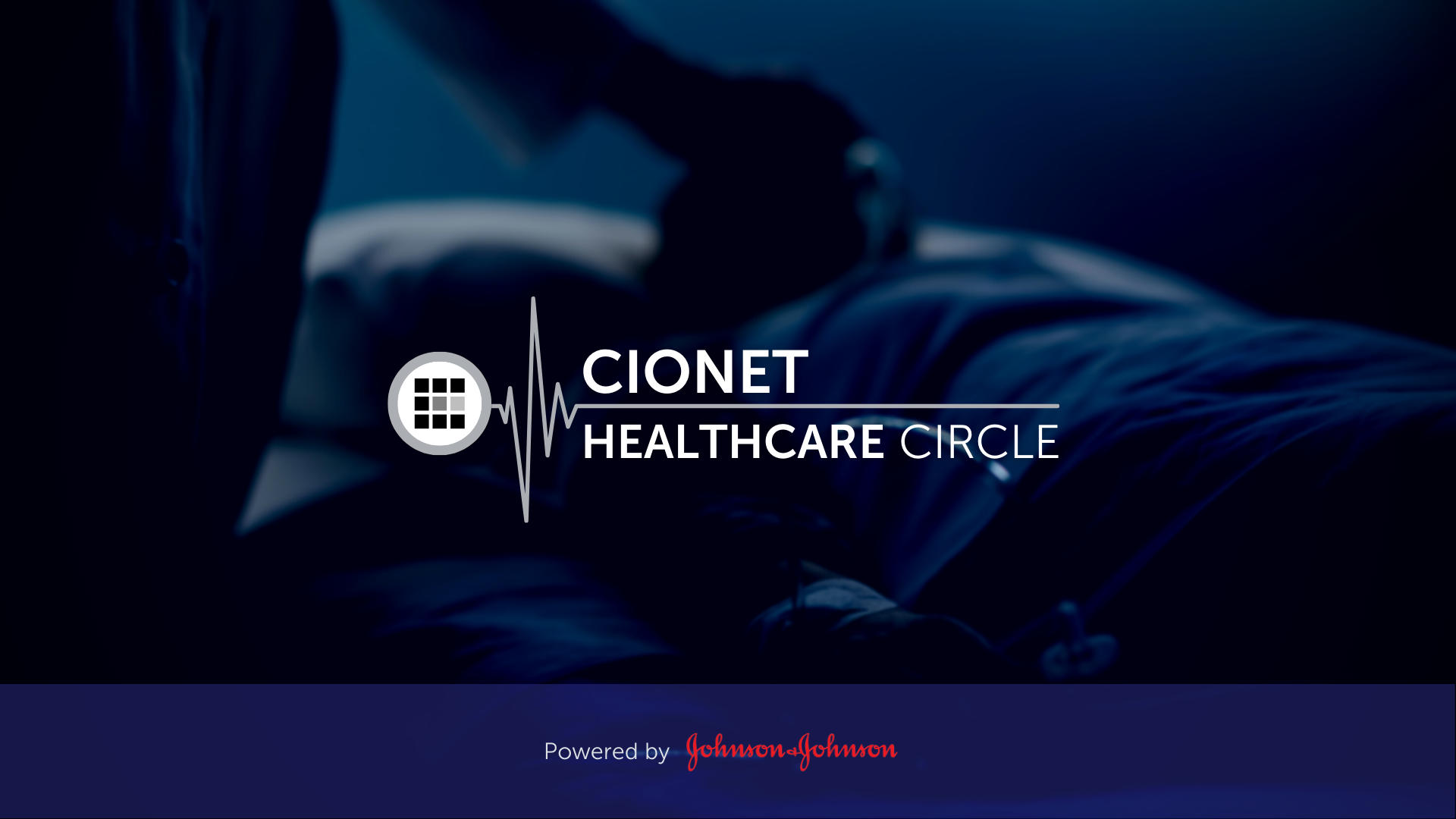
Digital Transformation is redefining the future of health care and health delivery. All stakeholders are convinced that these innovations will create value for patients, healthcare practitioners, hospitals, and governments along the patient pathway. The benefits are starting from prevention and awareness to diagnosis, treatment, short- and long-term follow-up, and ultimately survival. But how do you make sure that your working towards an architecturally sound, secure and interoperable health IT ecosystem for your hospital and avoid implementing a hodgepodge of spot solutions? How does your IT department work together with the other stakeholders, such as the doctors and other healthcare practitioners, Life Sciences companies, Tech companies, regulators and your internal governance and administrative bodies?
Read More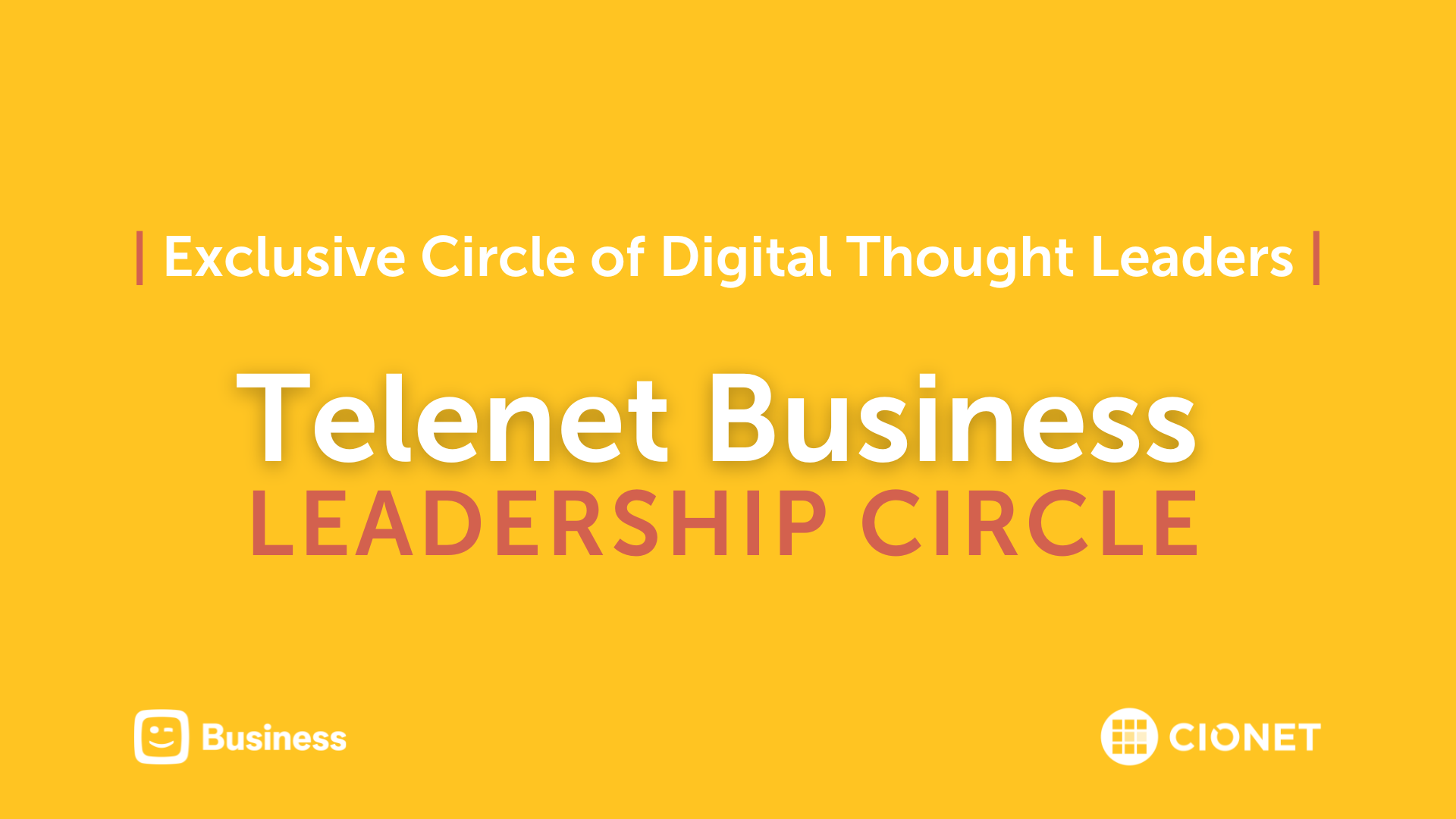
The Telenet Business Leadership Circle powered by CIONET, offers a platform where IT executives and thought leaders can meet to inspire each other and share best practices. We want to be a facilitator who helps you optimise the performance of your IT function and your business by embracing the endless opportunities that digital change brings.
Read More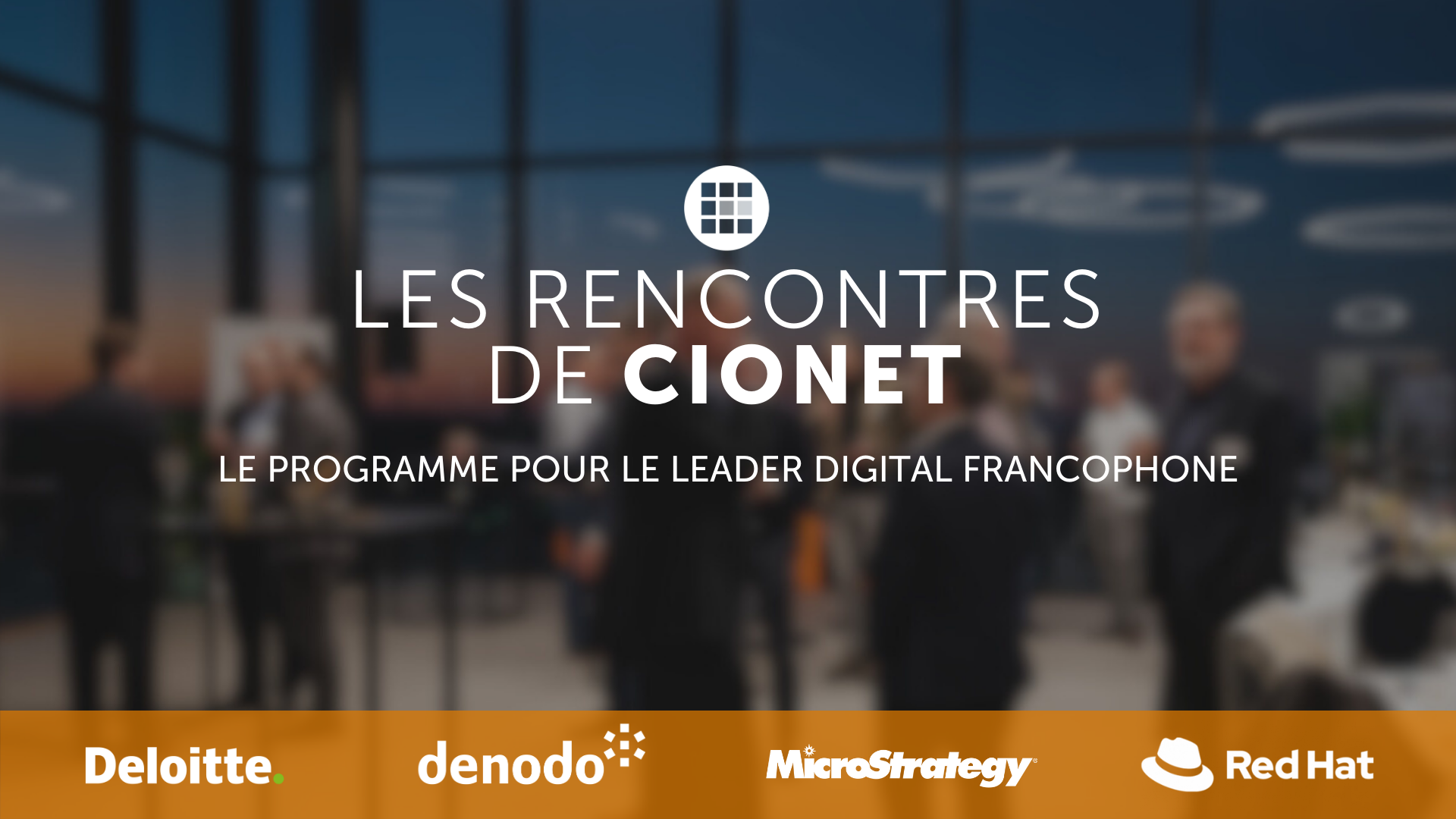
Découvrez la dynamique du leadership numérique aux Rencontres de CIONET, le programme francophone exclusif de CIONET pour les leaders numériques en Belgique, rendu possible grâce au soutien et à l'engagement de nos partenaires de programme : Deloitte, Denodo et Red Hat. Rejoignez trois événements inspirants par an à Liège, Namur et en Brabant Wallon, où des CIOs et des experts numériques francophones de premier plan partagent leurs perspectives et expériences sur des thèmes d'affaires et de IT actuels. Laissez-vous inspirer et apprenez des meilleurs du secteur lors de sessions captivantes conçues spécialement pour soutenir et enrichir votre rôle en tant que CIO pair. Ne manquez pas cette opportunité de faire partie d'un réseau exceptionnel d'innovateurs numériques !
Read More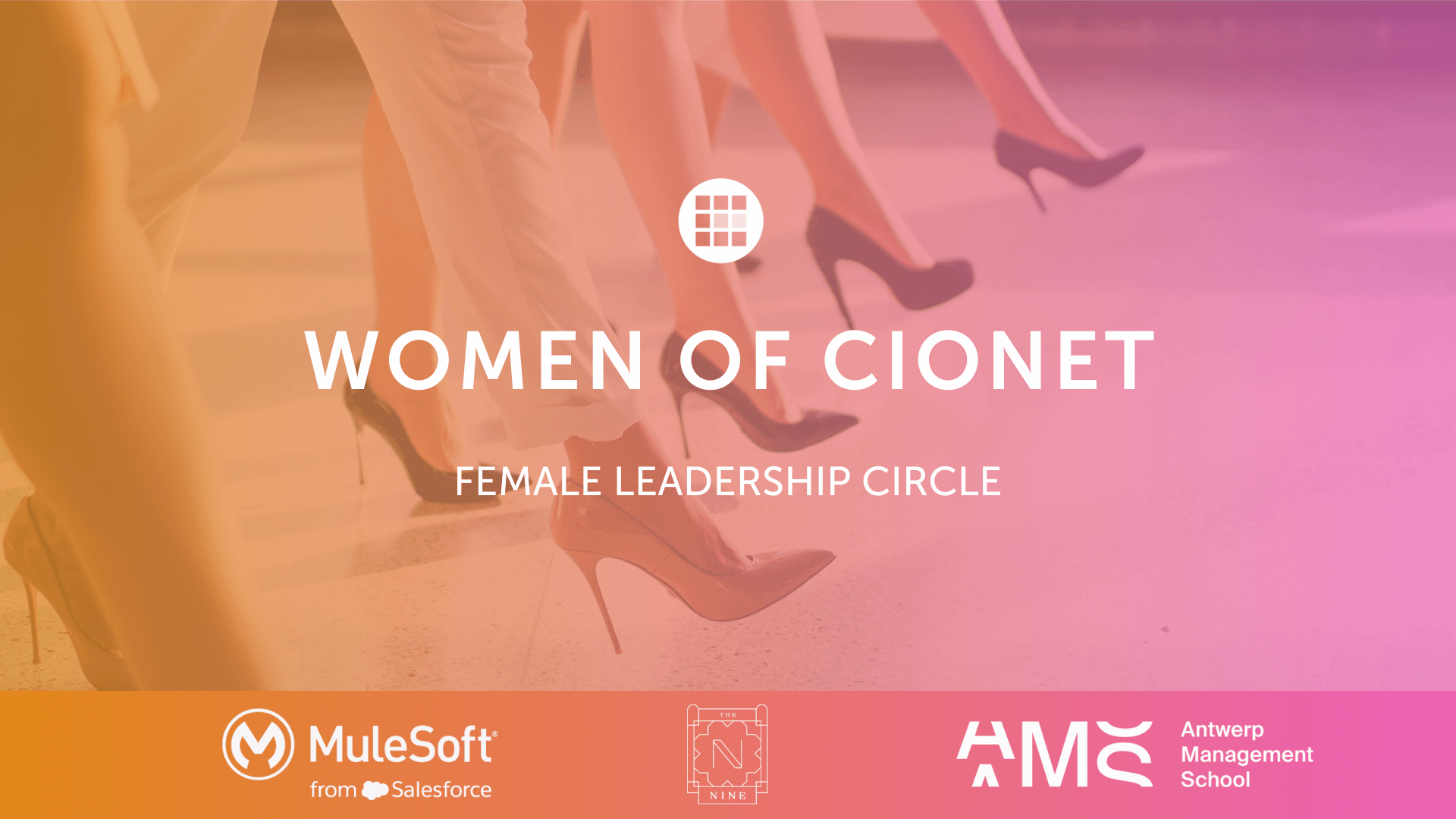
CIONET is committed to highlighting and celebrating female role models in IT, Tech & Digital, creating a leadership programme that empowers and elevates women within the tech industry. This initiative is dedicated to showcasing the achievements and successes of leading women, fostering an environment where female role models are recognised, and their contributions can ignite progress and inspire the next generation of women in IT. Our mission is to shine the spotlight a little brighter on female role models in IT, Tech & Digital, and to empower each other through this inner network community.
Read More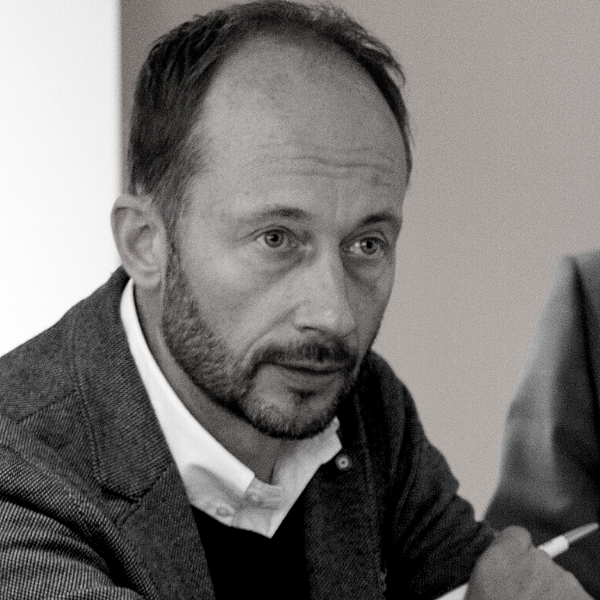


-Apr-01-2022-10-58-34-57-AM.png)



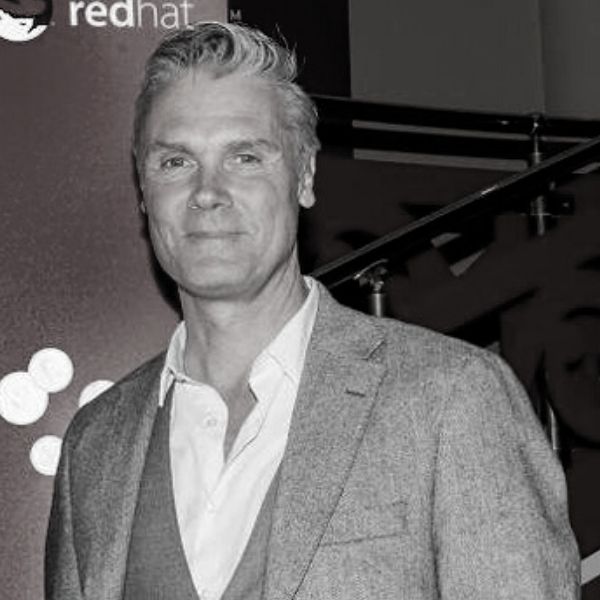





-Dec-13-2023-10-53-15-5032-AM.png)



-Jun-12-2023-01-23-11-7540-PM.png)




-Apr-01-2022-10-58-34-68-AM.png)








.png)









-Sep-01-2022-02-47-55-60-PM.png)
-Nov-22-2023-08-56-42-6802-AM.png)
.png)

Would you like to know more about CIONET Belgium, membership or partnership opportunities? Do you have feedback or any other question? Send us a message!
You can either send us a registered handwritten letter explaining why you'd like to become a member or you can simply talk to us right here!